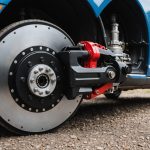High-mileage used cars can be a tempting bargain, but the allure of a low purchase price can quickly fade without a thorough understanding of their total cost of ownership. From hidden maintenance costs to insurance and fuel efficiency, these factors significantly impact your wallet over time. This guide will equip you with the insights needed to make informed decisions and avoid unexpected expenses, ensuring your investment remains worthwhile in the long run.
Understanding Total Cost of Ownership (TCO)
When purchasing a car, understanding the Total Cost of Ownership (TCO) is crucial. TCO encompasses not just the purchase price, but all expenses associated with owning a vehicle over time. This approach helps buyers make informed decisions by considering long-term financial implications.
Also to see : Ultimate Guide to Transporting Hazardous Materials in Personal Vehicles: Legal Regulations Across the UK
TCO definition includes several key components:
- Depreciation: The reduction in a car's value over time, a significant factor in TCO.
- Maintenance: Regular servicing and unexpected repairs can quickly add up.
- Insurance: Costs vary based on the car's make, model, and the owner's driving history.
- Fuel costs: These depend on the vehicle's efficiency and fuel prices.
For high-mileage cars, TCO can differ significantly from low-mileage vehicles. High-mileage cars often face increased maintenance needs and potentially higher fuel costs due to reduced efficiency. However, they may have lower depreciation rates, as much of the value loss has already occurred.
Additional reading : Essential Tips for Optimizing Diesel Particulate Filter Maintenance in UK Vehicles
Understanding these nuances allows buyers to weigh the pros and cons of purchasing a high-mileage vehicle against a low-mileage one. Ultimately, a thorough grasp of TCO enables buyers to select a vehicle that aligns with their financial situation and driving needs.
Depreciation and Its Impact on High-Mileage Cars
Depreciation significantly affects the vehicle value, especially in high-mileage cars. Various factors influence car depreciation, including age, mileage, and market demand. High-mileage vehicles typically experience slower depreciation, as much of their value loss occurs early in their lifecycle. However, they may still face challenges in retaining value due to wear and tear.
For popular UK models, high-mileage depreciation rates vary. For instance, a high-mileage Ford Fiesta may depreciate at a slower rate compared to a low-mileage BMW due to its lower initial cost and widespread demand. Understanding these trends can help buyers make informed decisions.
To mitigate depreciation losses, consider opting for vehicles with historically strong resale value. Regular maintenance and keeping mileage within reasonable limits can also help maintain the car's value. Furthermore, choosing a car with a reputation for reliability can reduce the impact of depreciation over time. By focusing on these strategies, owners can better manage the financial implications of owning a high-mileage vehicle.
Maintenance Costs for High-Mileage Vehicles
When considering a high-mileage car, understanding its maintenance costs is vital. These vehicles often present unique challenges, but with the right approach, they can remain reliable and cost-effective.
Common Maintenance Issues
High-mileage cars frequently face issues such as worn-out brakes, suspension problems, and engine wear. Regular checks can identify potential problems early, preventing costly repairs.
Average Annual Maintenance Costs
Maintenance costs vary significantly across different models. For instance, maintaining a high-mileage Ford Fiesta might be less expensive than a BMW, reflecting differences in parts and service costs. On average, owners might expect to spend £500 to £1,200 annually, depending on the car's make and model.
Tips for Effective Maintenance
To enhance the reliability of high-mileage vehicles, consider these tips:
- Regular servicing: Stick to the manufacturer's service schedule to keep the vehicle in optimal condition.
- Quality parts: Invest in high-quality replacement parts, which can improve performance and longevity.
- Routine checks: Regularly inspect vital components like brakes, tyres, and fluids to catch issues early.
By understanding and managing maintenance costs, owners can ensure their high-mileage cars remain dependable and efficient.
Insurance Considerations for Used Cars
When purchasing a used car, especially a high-mileage vehicle, understanding the nuances of car insurance is essential. In the UK, insurance premiums are influenced by various factors, including mileage. Typically, higher mileage can lead to increased insurance costs due to the perceived risk of breakdowns and accidents.
Mileage and Insurance Premiums
In general, insurance providers consider high-mileage cars a greater risk. This is because these vehicles are more likely to encounter mechanical issues. Consequently, this perception can lead to higher premiums. However, some insurers offer competitive rates for well-maintained high-mileage cars, recognising their potential reliability.
Recommended Coverage
For high-mileage vehicles, comprehensive coverage is advisable. This type of insurance not only covers accidents but also protects against theft and damage from natural events. Additionally, breakdown cover can be beneficial, offering peace of mind for older vehicles.
Comparing Insurance Quotes
To find the best insurance deal, compare quotes from different providers. This process involves considering factors such as the car model and its mileage. Some insurers specialise in high-mileage vehicles, potentially offering more favourable terms. By exploring various options, you can secure a policy that balances cost and coverage effectively.
Fuel Efficiency and Its Role in TCO
Understanding fuel efficiency is crucial when assessing the Total Cost of Ownership (TCO) for high-mileage vehicles. High-mileage cars often exhibit increased fuel consumption, impacting overall fuel costs significantly.
Average Fuel Consumption Rates
Typically, high-mileage vehicles consume more fuel due to engine wear and reduced efficiency. On average, older petrol vehicles may achieve 25-30 miles per gallon (mpg), while diesel counterparts might reach 35-40 mpg. This difference can affect annual fuel expenses, depending on driving habits and distances covered.
Cost Implications of Fuel Types
Choosing between petrol and diesel impacts fuel costs. Diesel engines are generally more fuel-efficient, offering lower consumption rates. However, diesel fuel tends to be pricier than petrol, which can offset savings from improved efficiency. It's essential to consider these factors when calculating TCO.
Tips to Improve Fuel Efficiency
To enhance fuel efficiency in older vehicles, consider these strategies:
- Regular maintenance: Ensure the engine is well-tuned, and filters are clean.
- Optimal tyre pressure: Properly inflated tyres can reduce rolling resistance.
- Smooth driving: Avoid rapid acceleration and harsh braking to conserve fuel.
By focusing on these aspects, owners can mitigate high-mileage fuel consumption and manage fuel costs more effectively.
Evaluating Reliability of High-Mileage Cars
Understanding the reliability of high-mileage cars is crucial when assessing their Total Cost of Ownership (TCO). A reliable vehicle can reduce unexpected expenses and provide peace of mind.
Importance of Reliability Ratings
Reliability ratings offer valuable insights into a vehicle's performance over time. These ratings help buyers gauge the potential longevity and durability of a high-mileage car. A high reliability rating often indicates fewer issues, translating to lower maintenance costs and a more predictable ownership experience.
Resources for Checking Reliability
Several resources provide comprehensive reliability ratings for used cars. Websites like Consumer Reports and J.D. Power offer detailed reviews and ratings based on user feedback and expert analysis. These platforms evaluate various aspects, including engine performance, build quality, and common issues, helping buyers make informed decisions.
Case Studies of Reliable Models
Certain high-mileage models are renowned for their reliability. For instance, the Toyota Camry and Honda Accord frequently receive high marks in used car reviews for their dependability. These models often maintain performance even with significant mileage, making them popular choices for budget-conscious buyers.
Tools and Resources for Calculating TCO
When considering a vehicle purchase, leveraging TCO calculators can be invaluable. These online tools simplify the process by providing a comprehensive breakdown of all ownership costs, including depreciation, maintenance, insurance, and fuel. By inputting specific car details, buyers receive a tailored cost estimate, aiding in informed decision-making.
Recommended Resources
For those seeking to delve deeper into Total Cost of Ownership, several car buying resources offer extensive insights. Websites such as Edmunds and Kelley Blue Book provide detailed analyses and comparisons of various models, allowing buyers to weigh the financial implications effectively. These platforms often include user reviews and expert opinions, enriching the decision-making process.
Tips for Informed Decisions
To maximise the benefits of TCO analysis, consider these tips:
- Utilise multiple calculators: Comparing results from different tools ensures a well-rounded view.
- Stay updated: Regularly check for updated data on fuel prices and insurance rates.
- Research thoroughly: Combine TCO insights with expert reviews and reliability ratings to choose a vehicle that aligns with your budget and needs.
By employing these strategies, buyers can confidently navigate the complexities of vehicle ownership costs.











